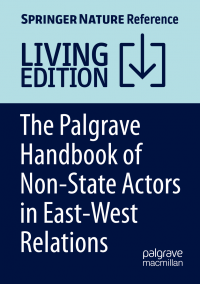An Abkhaz Civil Society Organization in the Abkhaz (De Facto) State

This chapter analyzes the relationship between an Abkhaz Civil Society Organization (ACSO) and the Abkhaz authorities. The latter is considered here as a state actor, even if Abkhazia remains a de facto state because it lacks full international recognition. Based on a qualitative methodology, encompassing interviews and analysis of a range of (official) documents, the chapter analyzes the relationship of the ACSO with the Abkhaz authorities as observed in the process of legislative negotiation and interpersonal interactions. The negotiations concerned access by the ACSO to foreign funding, its field of activity, and its capacity to challenge the Abkhaz authorities’ actions. Interestingly, through institutional settings such as the Ombudsperson’s Office for Human Rights, ACSOs – and in particular the case studied here, fictitiously named as “Abkhaz Social Point” (ASP) to protect its identity – managed to amend some laws, policies, and practices of the Abkhaz authorities. For example, effective interventions took place regarding the dual taxation of the inhabitants of Gal/Gali district, the distribution of Abkhaz citizenship documents, and the issue of access to foreign (financial) resources. The chapter also shows that Abkhaz Social Point functioned as a bridge against the backdrop of tense Russo-Western relations as it has been cooperating directly with the European Union (EU) and United Nations (UN) agencies. These international donors and international organizations, bound by their non-recognition policy, could not have established direct contact with the Abkhaz authorities themselves. In conclusion, in a “de-centering” reconsideration of the concept of “East-West” relations, peculiarities of the role played by ACSOs in the Abkhazian context are highlighted, pointing to ASP and similar organizations as finding themselves in a mediating role between authorities of the (de facto) Abkhaz state and international organizations and donors perceived in the local environment as “Western.”
